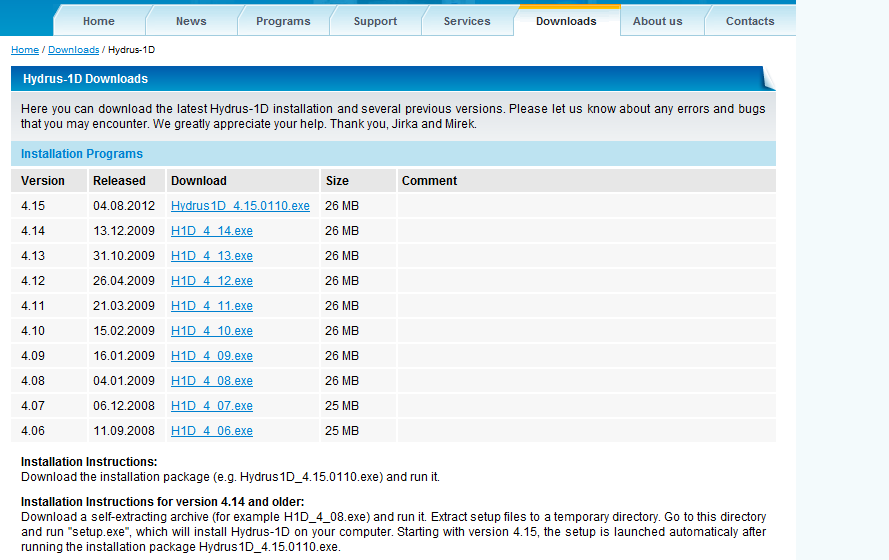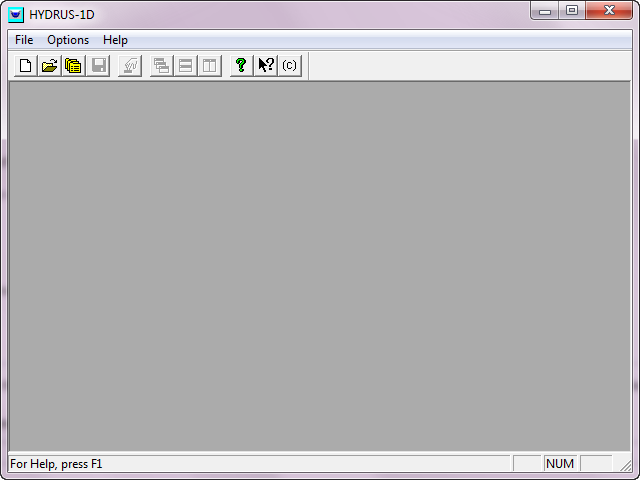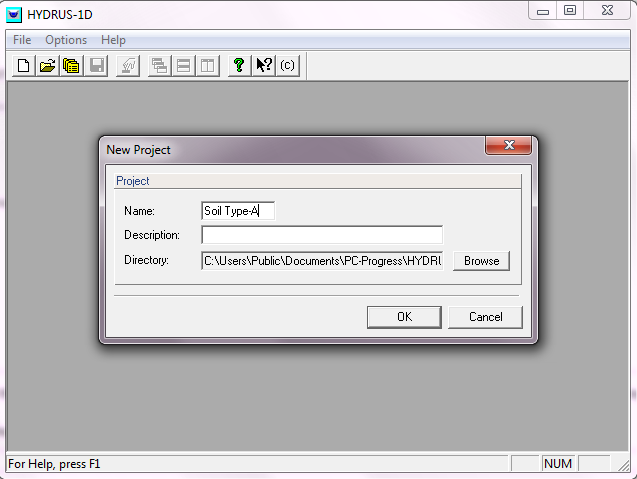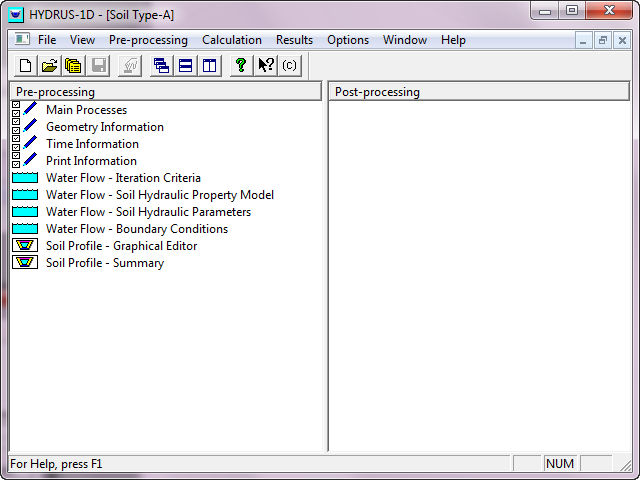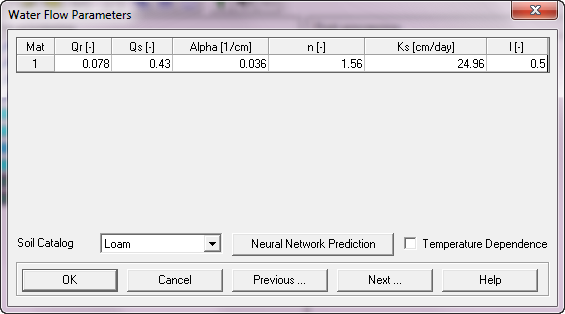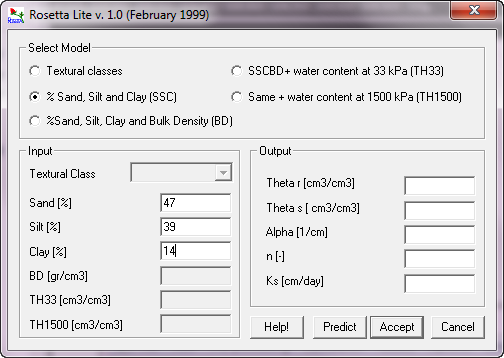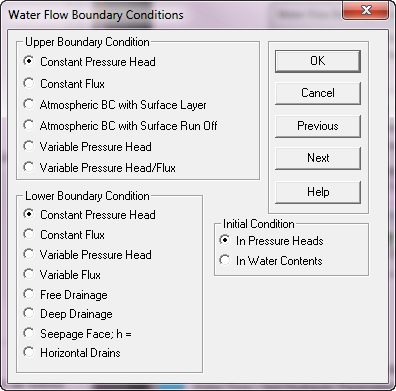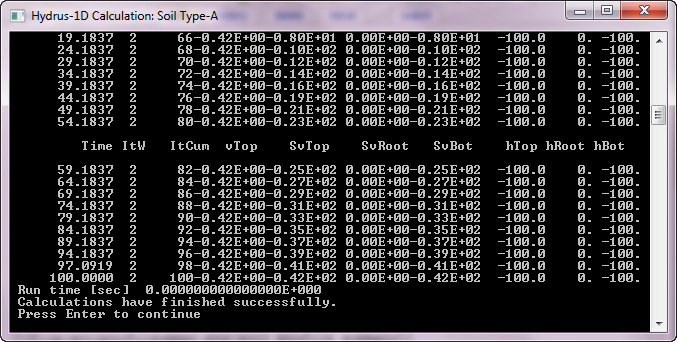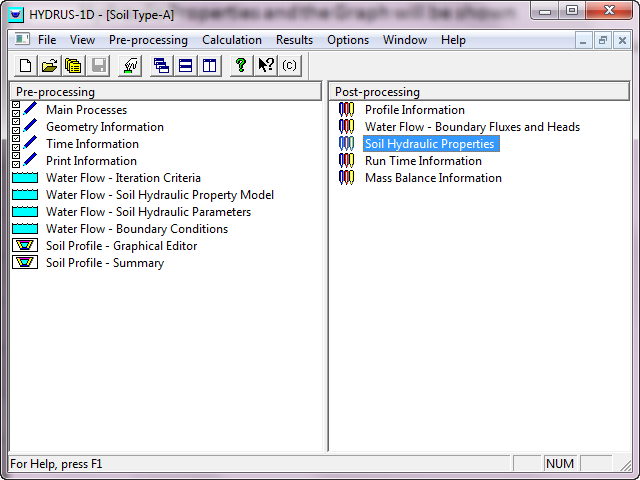Soil parameterization
| Line 101: | Line 101: | ||
[[File:Graph.png|graph]] | [[File:Graph.png|graph]] | ||
| + | |||
| + | Keep the horizontal variable 'pressure head' and verticle 'water content'. | ||
Right click on the graph and click 'Edit Chart Data'. | Right click on the graph and click 'Edit Chart Data'. | ||
| + | A new window 'data grid editor' will appear. | ||
[[File:datagrid.png|Data Grid]] | [[File:datagrid.png|Data Grid]] | ||
| Line 109: | Line 112: | ||
The C1 is pressure (mbar) and C2 is water holding capacity (%) | The C1 is pressure (mbar) and C2 is water holding capacity (%) | ||
| − | Take a note of the pressure of 0, 59.9 and 10,000 and related water holding capacity. You will get the values 0.39, 0.34 and 0.08 respectively. Multiplying these values will give absolute value in mm i.e. 39, 34 and 8. | + | Take a note of the pressure of 0, 59.9 and 10,000 and related water holding capacity. You will get the values 0.39, 0.34 and 0.08 respectively. Multiplying these values by 100 will give absolute value in mm i.e. 39, 34 and 8. |
Revision as of 12:32, 8 August 2012
To develop soil parameterization file, first the depth of the different soil horizons and texture (combination of soil, silt and clay) in percentage is required. This information is general available in soil dataset. The texture information is useful to describe the characteristics of soil water retention curve. The soil texture information (in percentage) is provided as input data to the software component ROsetta inside 'HYDRUS 1D' to understand pedotransfer functions of soils in three different hypothetical pressure scenarios. They are: 0 mbar, 60 mbar and 15,000 mbar. The soil texture is classified according to the specific pore volumes of soil (Scheffer and Schachtschabel 1984).
For example, a soil type A has following depth and texture combination:
| Horizon | Depth (cm) | Texture (Sand,Silt,Clay %) |
|---|---|---|
| A Horizon | 15 | texture (47, 39, 14 ) |
| B Horizon | 15 | texture (40, 42, 19 ) |
| C Horizon | 25 | texture (33, 40, 27 ) |
| D Horizon | 35 | texture (49, 33, 18 ) |
| E Horizon | 35 | texture (55, 32, 13 ) |
The texture information needs to be supplied to HYDRUS 1D software to get the water holding capacity of the specific texture combination:
- The HYDRUS 1D can be download from the following link: http://www.pc-progress.com/en/Default.aspx?hydrus-1d
- Click Hydrus-1D Downloads-->
- Download the latest version (In this tutorial, version Hydrus1D_4.15.0110 is downloaded)
- Open the software:
Click File--> New-->>
Give the name for the new project. For example: Soil type-A
Click OK
A new window with new project name will appear:
On pre-processing windows select the “Water Flow – Soil Hydraulic Parameters”
The new window will appear:
On this window, select the “Neural Network Prediction”.
A new window will appear:
Select model of “% Sand, Silt and Clay (SSC)”.
Input the percentage of SSC in the window. In this example, the SSC of A-horizon from the table above is provided.
Click ‘Predict’ and the Output will be resulted.
Click ‘Accept’ and a new window will appear.
Click ‘Next’ a new windows appear.
In the new window, make sure that the Upper and Lower Boundary Condition is set to ‘Constant Pressure Head’ and Initial Condition is ‘In Pressure Heads’.
Then click Next
Click next and a new window will appear:
Click Next
Soil profile summary table will appear
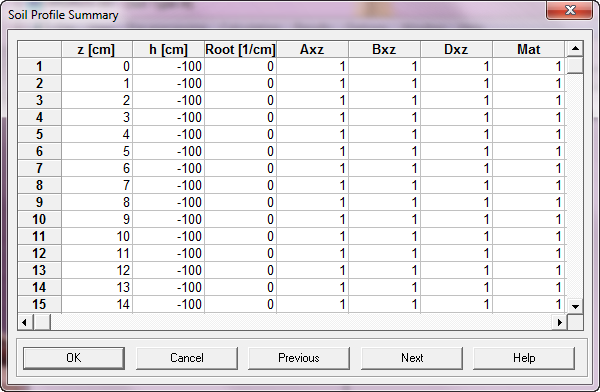
Click Next
A new window with the following message will appear: 'Do you want to run HYDRUS-1D application?' Click OK
Several outputs will appear in Post-processing window
Press Enter to continue.
Now your data is saved and you will be taken to initial windows.
Double click the Soil Hydraulic Properties and a new graph will appear
Keep the horizontal variable 'pressure head' and verticle 'water content'.
Right click on the graph and click 'Edit Chart Data'.
A new window 'data grid editor' will appear.
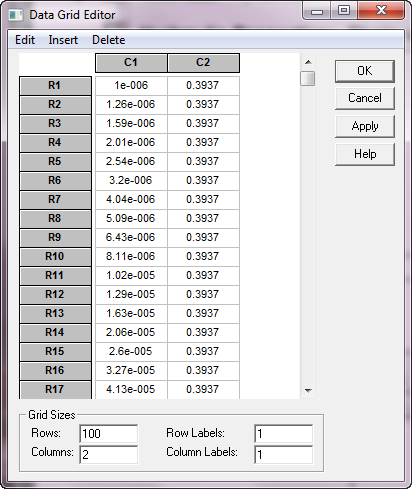
The C1 is pressure (mbar) and C2 is water holding capacity (%)
Take a note of the pressure of 0, 59.9 and 10,000 and related water holding capacity. You will get the values 0.39, 0.34 and 0.08 respectively. Multiplying these values by 100 will give absolute value in mm i.e. 39, 34 and 8.
